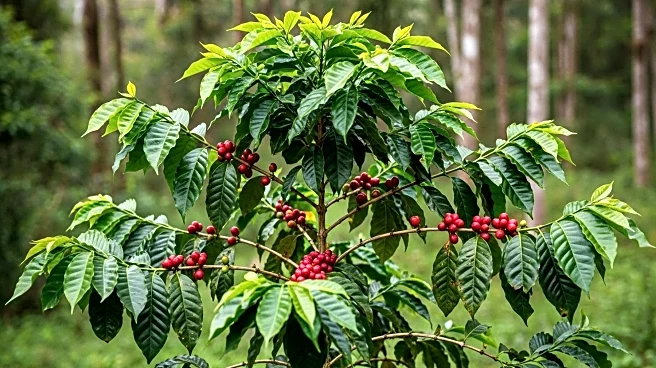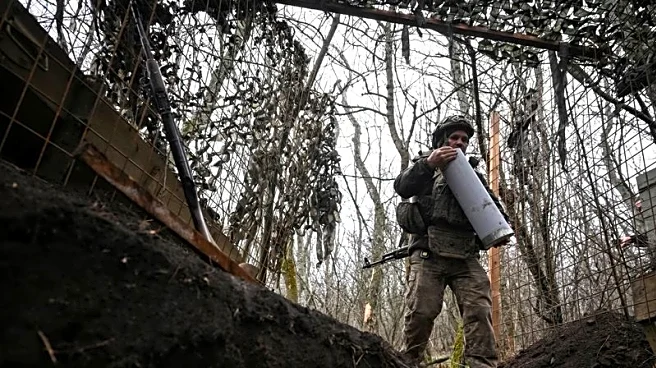What is the story about?
What's Happening?
The Rainforest Alliance has introduced a new regenerative agriculture certification standard specifically for coffee. This initiative aims to assist farmers and companies in building more resilient livelihoods by promoting sustainable farming practices. The certification is designed to enhance the environmental and social sustainability of coffee production, ensuring that farming methods contribute positively to ecosystems and communities.
Why It's Important?
The introduction of a regenerative agriculture certification for coffee by the Rainforest Alliance is significant for the coffee industry, which faces challenges related to environmental sustainability and social responsibility. By adopting regenerative practices, coffee producers can improve soil health, increase biodiversity, and reduce carbon emissions, contributing to the fight against climate change. This certification also supports the livelihoods of farmers by promoting fair trade practices and improving the resilience of coffee-growing communities.
What's Next?
Coffee producers and companies are expected to adopt the new certification to align with global sustainability goals and consumer demand for ethically produced goods. The Rainforest Alliance will likely work closely with stakeholders to implement the certification and monitor its impact on coffee production. This may lead to broader adoption of regenerative agriculture practices across other sectors, enhancing overall sustainability in agriculture.
Beyond the Headlines
The certification could drive long-term changes in the coffee industry, encouraging a shift towards more sustainable and ethical production methods. It may also influence consumer behavior, as more individuals seek products that align with their values regarding environmental and social responsibility. This could lead to increased market demand for certified coffee, benefiting both producers and consumers.
















